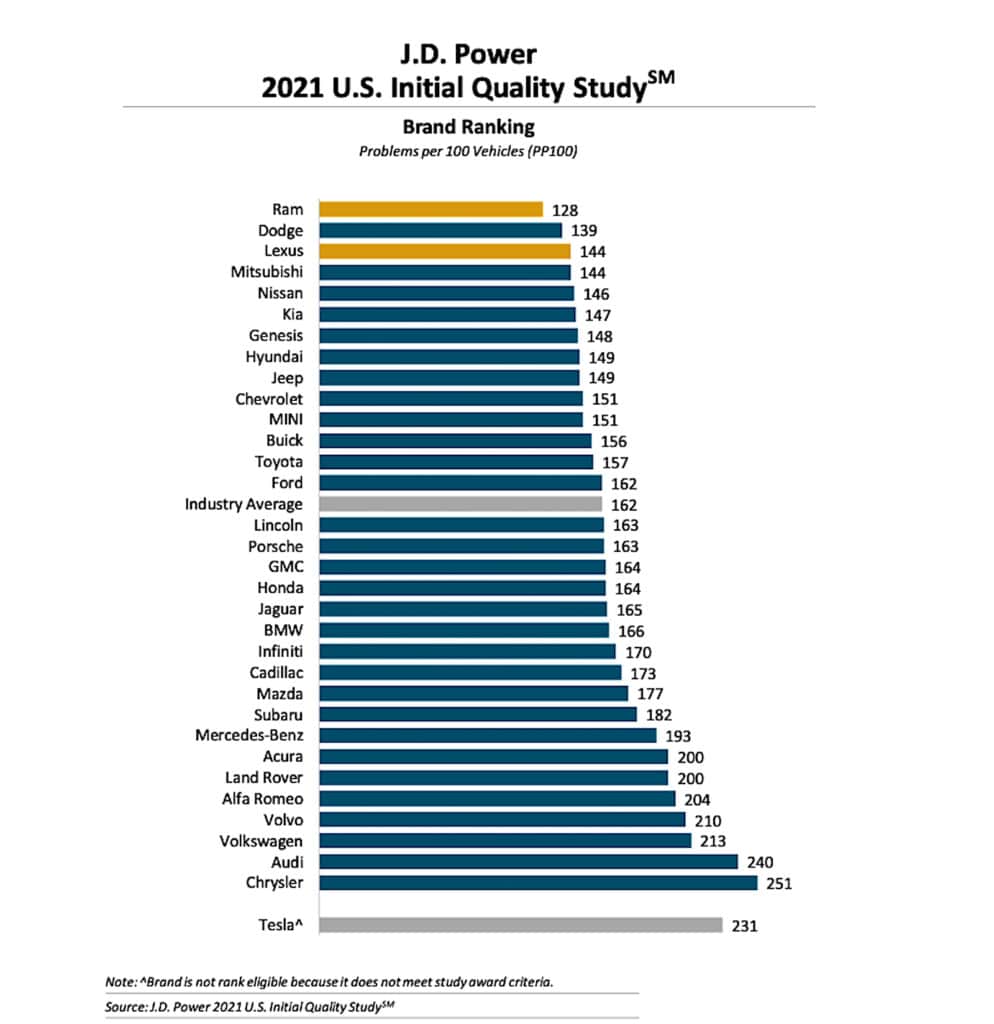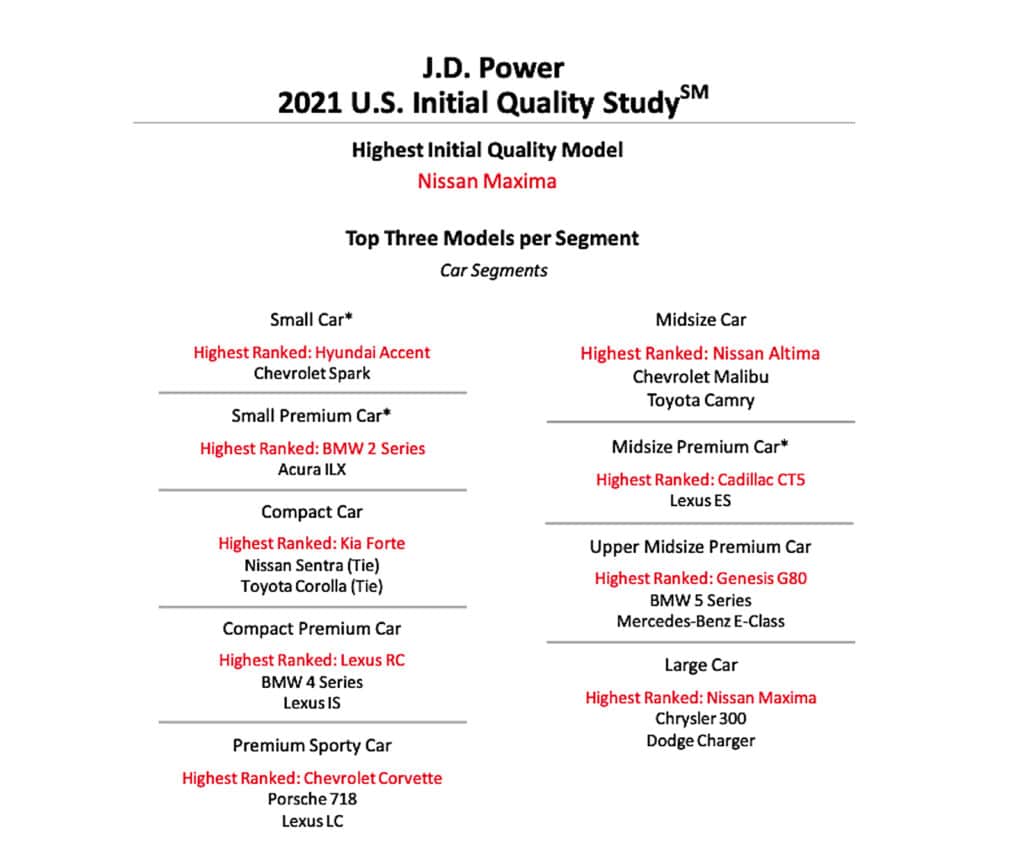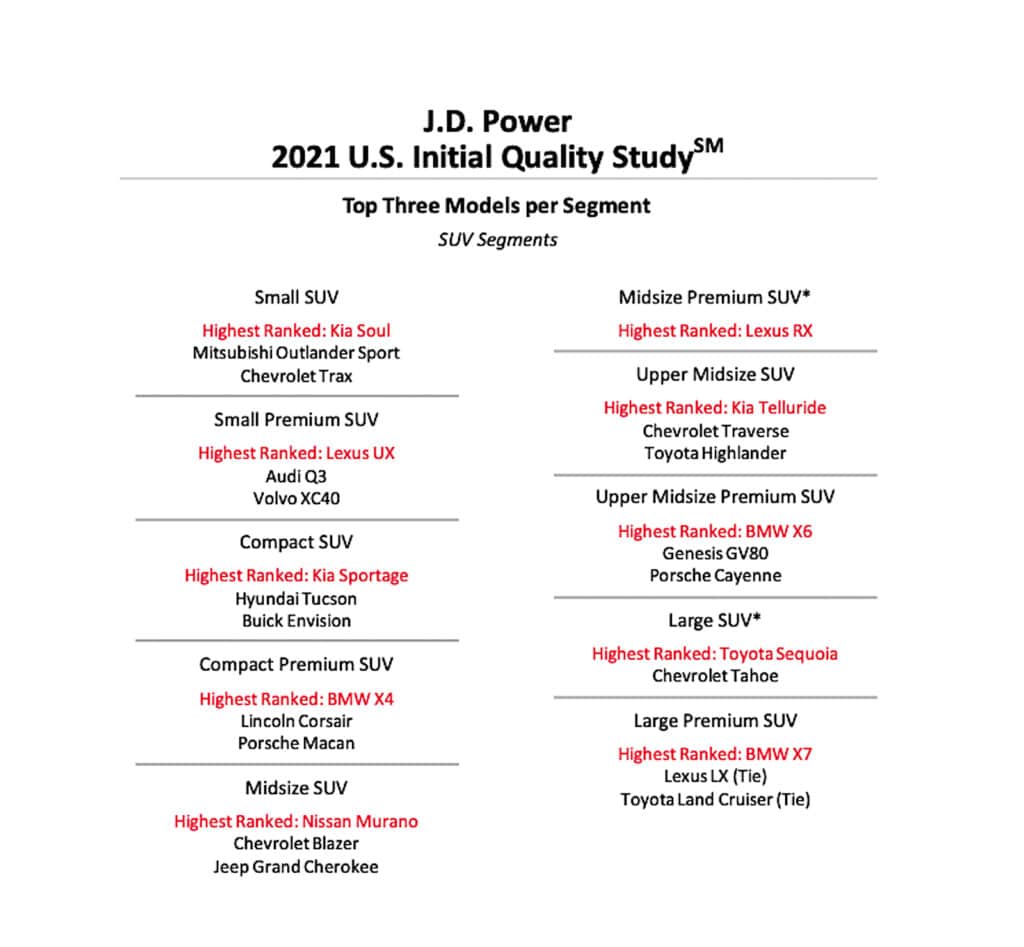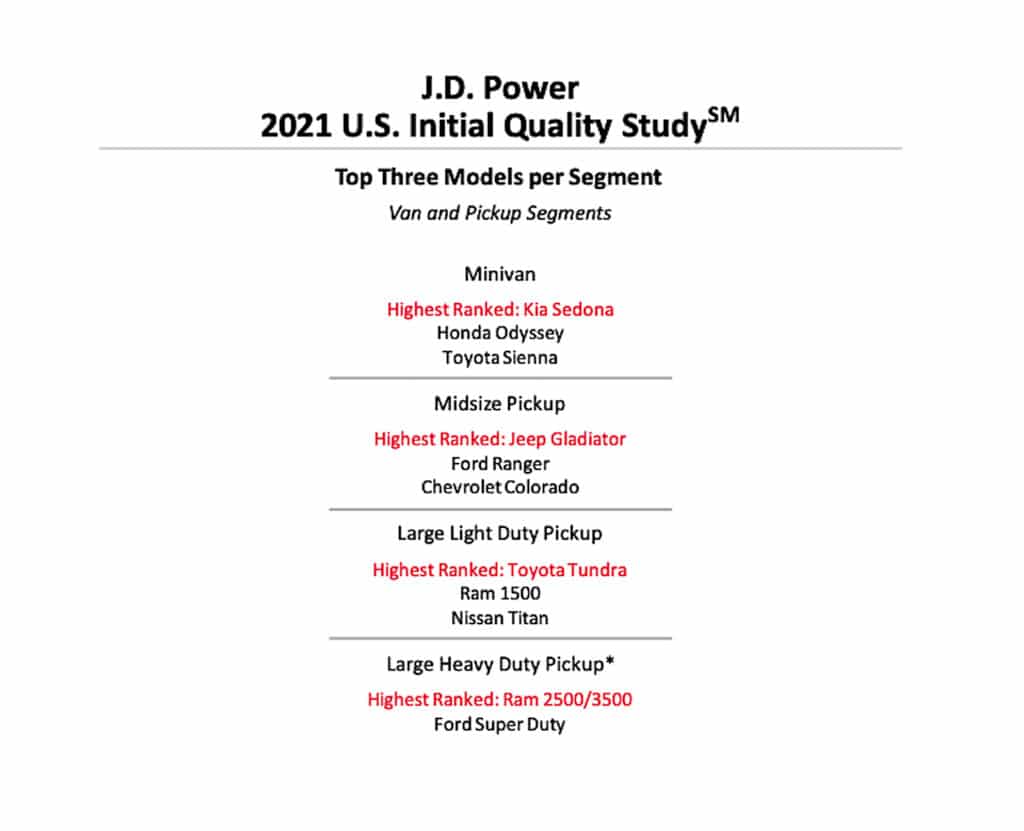With rare exception, automotive manufacturers have largely solved the sort of nagging quality problems — like bad paint and poor-fit-and-finish — that once plagued the industry. But there’s a new class of trouble plaguing car buyers and carmakers alike: balky electronic systems.

And that’s slowed down the improvements in quality the auto industry has been experiencing during the last decade, according to the 2021 J.D. Power Initial Quality Study. Overall, the number of problems car buyers reported during the first 90 days of ownership fell a modest 2%, but owners and lessees noted a sharp rise in complaints about technologies like voice control, navigation and infotainment systems.
“Consumers want this stuff but, but many are having trouble with it,” said Dave Sargent, Power’s head of automotive operations. “It’s not that consumers don’t know how to use it. It’s just not working.”
The decline of the luxury brands
Luxury brands like Audi, Acura and Mercedes-Benz were especially hard hit in the latest IQS. That’s no surprise because high-line products tend to have more electronics onboard than mainstream vehicles, said Sargent, in an exclusive interview with TheDetroitBureau.com.
Of the 35 marques that were included in the 2021 Initial Quality Study, only two landed in the top 10. And Lexus, which long dominated the IQS, managed to rank third, behind two Detroit brands, IQS-leading Ram, and Dodge. In 2020, the latter muscle carmaker became the first domestic brand ever to top the closely followed Power study. That’s partly due to the fact that most Dodge products have been around for a while and the brand has learned to build them reliably and repeatedly, said Sargent.

Mainstream brands accounted for eight of the top 10 in the latest IQS. And Detroit marques made up six of the 14 brands that scored above the industry average. According to Power, that worked out to 162 problems per 100 vehicles — or 162 PP100.
“Premium manufacturers long had an advantage in basic build quality,” said Sargent. “That’s really not the case anymore. The fundamental build quality of a Kia or Chevrolet is every bit as good as a BMW or a Mercedes. So, the mass market brands have caught up there while the luxury brands have a higher mix of (technical) features that can go wrong.”
The bottom of the barrel
Audi was a prime example 240 problems per 100, or nearly 50% more than the industry average. “They’ve been one of the leaders in tech and a lot of it has gone wrong for them,” Sargent noted.
The only brand to fare even worse was Chrysler, with a score with a score of 251 PP100. “It isn’t so much a Chrysler score, it’s a Pacifica score,” Sargent said, referencing the brand’s minivan problems. Chrysler’s slow-selling full-size sedan, the 300, was actually one of the highest-ranked models in the 2021 IQS.

With the exception of Chrysler, Subaru and Volkswagen, luxury brands dominated the bottom end of this year’s study. That included Tesla which was included in the IQS for the first time in 2020. Power adds a note of caution about the EV brand since Tesla won’t provide information about customers in 15 states where owner information isn’t made public. But there was enough data available to include it — and the company didn’t do very well, coming in third to last.
On the whole, “Automakers have gotten really good at building cars,” said Sargent. That apparently doesn’t apply to Tesla which has been plagued by reports of issues like faulty back seats on the Model 3 sedan.
Tesla trouble
“Building cars is hard,” said Sargent, “and the main reason they lag the rest of the industry has little to do with being an EV company. A lot of the problems they have involve build quality, paint, fit-and-finish and rattles. A lot of other manufacturers would not tolerate … the build quality of a lot of Tesla products.”
Tesla did fair better in some areas, notably in terms of electronics. That’s critical for the upstart automaker considering how much it relies on digital technology. Its products have few conventional controls, relying on their touchscreens to operate virtually every vehicle operation.

Getting electronic gremlins under control will be critical for the industry, on the whole, stressed Sargent. Balky infotainment systems alone accounted for 25% of the problems reported by the more than 110,000 owners and lessees who participated in the 2021 IQS. Voice control systems and technology like Bluetooth, Apple CarPlay and Android Auto were also high on the list. Wireless versions of CarPlay and Android Auto had nearly twice as many reported problems as wired versions, the IQS shows.
But the industry suffered from problems just about everywhere electronics are used, from smart safety systems to electrically operated seats. Such snafus accounted for “well over half” of the problems in the 2021 IQS, said Sargent, “maybe three-quarters.”
The best models
In terms of specific products, Hyundai Motor Group landed more individual segment wins than any other manufacturer, a total of seven for vehicles like the Hyundai Accent, Kia Soul and Genesis G80.
Toyota Motor Corp. was second on the list, with five awards for products including the Toyota Tundra and Lexus LX.
Four BMW products led their segment, while Nissan landed three winners. General Motors and Stellantis each had two.








Awesome! Its in fact amazing piece of writing, I have got much clear idea regarding from this article.
Hi there, I enjoy reading all of your article. I like to write
a little comment to support you.